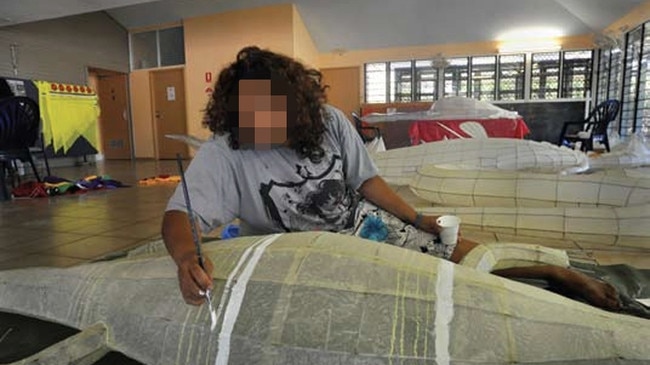Bailed partner held after NT woman’s death
A man with a ‘massive’ DV history was recently released on bail on multiple charges of domestic violence against his partner, who was found dead on Monday.

A man with a “massive domestic violence history”, banned from contacting his partner after allegedly threatening to kill her, is in custody following the death of the woman in Darwin.
In what is now the third alleged case Territory police are treating as a possible domestic violence homicide in 2025, a 39-year-old man was arrested following the “suspicious” death of a woman, 40, on Monday morning.
At the time of the woman’s death the man in custody was on bail for seven charges, six of which involved alleged violent offending.
The man was released into the community on bail on December 4, with an interim domestic violence order granted in November also in place to protect the alleged victim.
At 9am on Monday police were called to a property about 30 minutes from Darwin, where they found the “seriously ill” woman.
She was then taken to Royal Darwin Hospital in a critical condition where she died. Police are also investigating whether the death may be health related.
It comes less than a week after a mother of four in Alice Springs was also allegedly killed at the hands of her partner, who has an extensive criminal history.
The man charged with that murder has multiple criminal convictions for breaching domestic violence orders, aggravated assault, breaching court orders, and fighting in a public place.
In mid January a woman was allegedly struck with a rock by her partner in the Todd River in Alice Springs, after the pair had been drinking hand sanitiser.
The three deaths follow domestic violence-related deaths in 2024 involving alleged killers with lengthy criminal records.
A coronial inquest into the death of four Aboriginal women in the Territory finalised last year found there was an “epidemic” of violence against Aboriginal women.
The inquiry found that since 2000, more than 80 women had died as a result of domestic violence in the Territory, and 93 per cent of them were Aboriginal.
Indigenous women in the NT are 40 times more likely to be hospitalised as a result of family violence than non-Indigenous women.
The inquests into the deaths of the four women were heard together because they raised similar issues: each woman had suffered years of domestic and family violence before their deaths, and had been engaged with frontline service providers during those years. More than 63 per cent of prisoners were on remand or in jail for domestic violence offences. But even those statistics under-reported the prevalence of the issue, coroner Elisabeth Armitage found, with less than 10 per cent of cases of violence against women being reported to police.
The scourge of domestic violence in the NT was becoming worse, she said. In the past 10 years, NT Police recorded a 117 per cent increase in the number of domestic violence reports, and they predict a further 73 per cent jump during the next decade.
“The plague of domestic violence homicides that relentlessly courses through our community in the Northern Territory is our horror and our national shame,” Ms Armitage said.
As many as eight in every 10 women in the NT experience domestic, family or sexual violence, Ms Armitage found. In 2021, the rates of domestic and family violence-related assault in the NT were three times the national average, and five times that of most other jurisdictions where data is reported.
According to Our Watch, a national peak body targeting the prevention of domestic violence against women and children, from June to November last year 33 per cent of women allegedly killed by male violence in Australia were Aboriginal and Torres Strait Islander women – despite making up just 4 per cent of the population.
Eight Aboriginal women died as a result of domestic violence in the NT between June and November.






